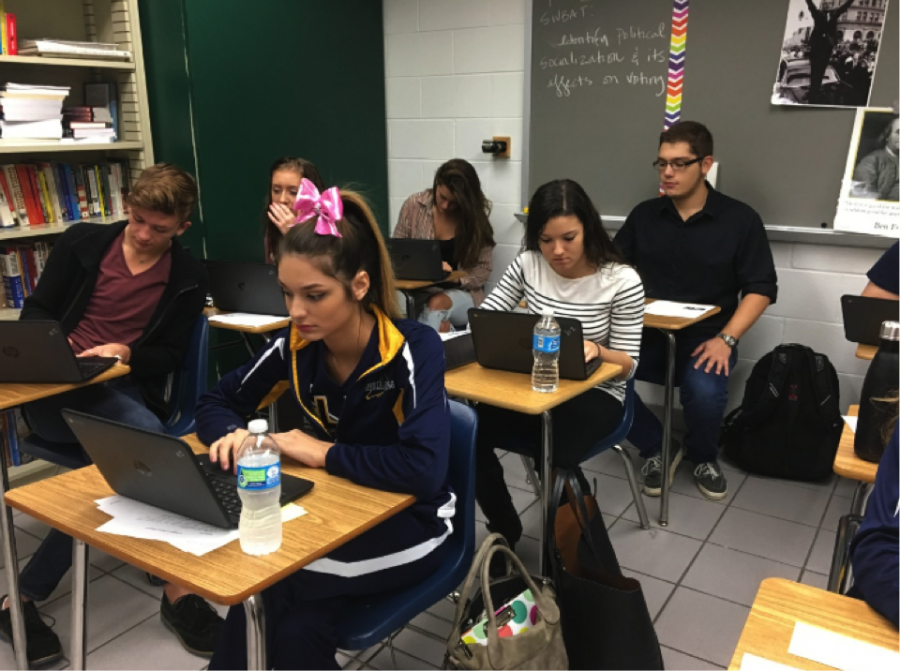School system implements Chromebooks in Social Studies classrooms
Alexis Buonfigli, Lizzy Lyons, Joseph Carter, Amber Woodard, Savannah Andrews, and Christian Glover, students in Darcy Pohl’s first block A.P. Government class, actively use the Chromebooks to complete a focus question at the beginning of class.
November 9, 2016
A new technology has been implemented in social studies classrooms this year.
“Chromebooks are a smaller, stripped down version of a laptop,” said instructional technology specialist, Bridget Mariano. “They have longer battery life than most of our laptops, are less expensive, and fit on the desk well enough to leave space for students to take notes.”
The Chromebooks, unlike other devices, offer more efficient and quick use of Google applications, such as Google Docs. They also utilize cloud storage, more so than other devices used in school.
“While you’re probably used to using Windows or Mac OS X at home, Chromebooks use a Google Operating System called Chrome OS,” said technology support technician, Andres Garrido. “Almost everything you do is tied to applications on the cloud and the device is pretty much required to always be on the internet.”
Social studies teachers at multiple test schools in Virginia Beach have been given class sets of the new devices to implement and use in all history classes. For the most part, feedback, at least in our school, has been positive.
“Chromebooks are very useful in my classroom,” said A.P. Psychology teacher, Carlin Conaway. “They start up faster than the laptops, and allow me to use applications, such as Google Docs, more collaboratively and efficiently in class.”
Along with teachers, students, for the most part, praise the new technology. Although, considering that the students are first-hand users of the Chromebooks, some are concerned.
“I like them, but I feel like they are limited in their capabilities,” said senior Kelly Wiegand.
The Chromebooks are, indeed, less capable on some parts, such that they don’t install software in the same way a traditional laptop does, and don’t allow printing.
Chromebooks are still being tested for problems, as technicians are beginning to better understand how to fix any issues with the new technology.
“There are no major issues, and the smaller issues are being worked on,” said Garrido.
The transition to the new technology goes hand in hand with recent efforts by schools to make resources less expensive and more efficient in use.
“You can do more of what you actually need to do, such as online applications, documents, and presentations, with less resource use and less expense to the schools,” said Garrido.
No one can guarantee that Chromebooks will have a lasting future in our schools, but they are making an impact as of now.
“I don’t think any device can be called helpful or hurtful,” said Mariano. “However, it is how the device is integrated into the learning experience that really determines the impact.”

